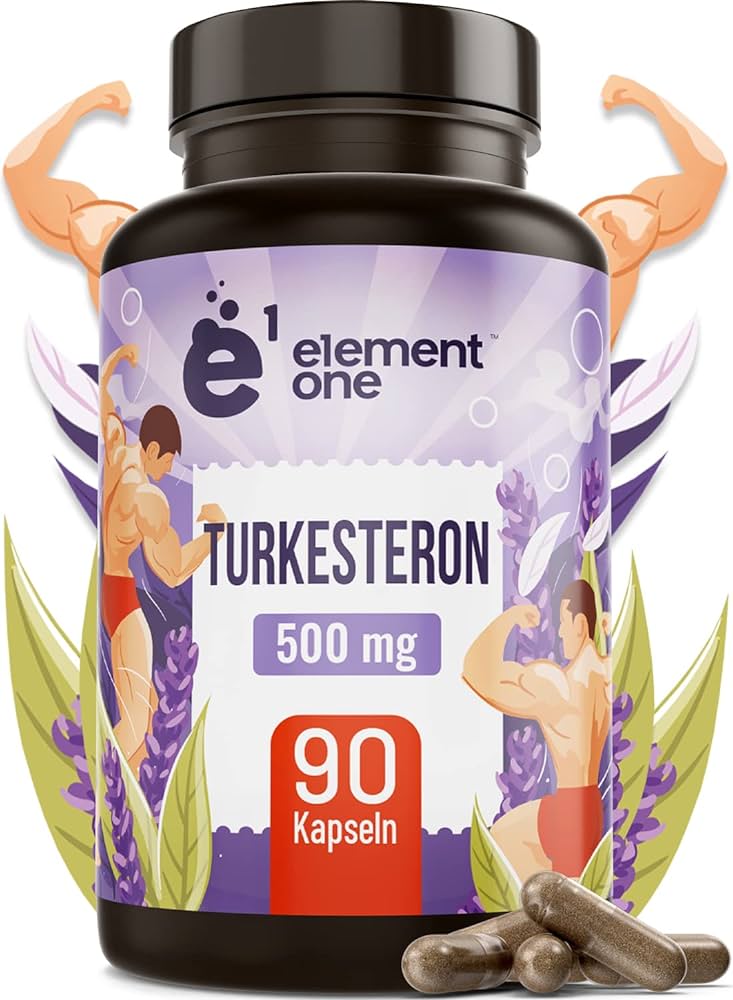Understanding the effects of alcohol on health is essential for making informed lifestyle choices. With widespread misconceptions about its benefits and risks, many individuals struggle to navigate the complexities of alcohol consumption. This article aims to clarify the health halo effect surrounding alcoholic beverages, debunk common myths, and explore the real impact of alcohol on physical and mental health.
By addressing these key issues, readers will gain valuable insights into how to assess their relationship with alcohol, set personal limits, and make healthier choices that align with their wellness goals. Through practical strategies and expert guidance, this article empowers individuals to take control of their health and well-being.
In this article you will find:
Understanding the Health Halo Effect of Alcohol
The concept of the health halo effect refers to the tendency of consumers to perceive a product as healthier than it actually is based on specific attributes, such as marketing claims or ingredients. When it comes to alcohol, this effect is particularly pronounced, as many people believe that certain types of alcoholic beverages, such as wine or craft beer, can offer health benefits. However, it is crucial to unpack this notion and understand what the health halo truly entails in the context of alcohol consumption.
What is the Health Halo Effect?
The health halo effect can lead to misconceptions about alcohol and its impact on health. This phenomenon often stems from the promotion of certain drinks as being “natural,” “organic,” or “low-calorie,” which can create a misleading perception that these beverages are inherently good for health. For instance, wine is frequently touted for its antioxidant properties, leading many to believe that it can contribute positively to heart health. While moderate consumption of wine has been linked to certain benefits, these claims can overshadow the potential risks associated with alcohol consumption.
Marketing and Misconceptions
Marketing strategies play a significant role in shaping public perception of alcohol. Brands often highlight specific ingredients or production methods to create a positive image. For example:
- Organic wines: Marketed as a healthier alternative due to the absence of synthetic pesticides and fertilizers.
- Low-calorie beers: Promoted as guilt-free options that allow for indulgence without the calorie burden.
- Craft spirits: Emphasized for their artisanal qualities, suggesting a superior product that may be healthier.
While these attributes may contribute to a better perception, they do not negate the fundamental effects of alcohol on the body. It’s essential to recognize that regardless of the source, alcohol can have detrimental effects when consumed excessively.
The Reality of Alcohol Consumption
Understanding the health halo effect requires acknowledging the realities of alcohol consumption. Research indicates that even moderate drinking can lead to negative health outcomes, such as:
- Increased risk of addiction: Regular consumption can lead to dependency and addiction issues.
- Impact on mental health: Alcohol can exacerbate anxiety and depression, counteracting any perceived benefits.
- Weight gain: Alcohol contains empty calories, which can contribute to weight gain and other health complications.
Additionally, the idea that certain drinks are “healthier” can lead to overconsumption, as individuals may feel justified in drinking more due to the perceived benefits. This paradox highlights the importance of critical thinking when it comes to health claims associated with alcohol.
Making Informed Choices
To navigate the health halo effect, consumers must educate themselves and make informed decisions about alcohol consumption. Here are some strategies to consider:
- Read labels: Understand what goes into the beverages you consume and look beyond marketing claims.
- Moderation is key: Limit alcohol intake to reduce the risks associated with consumption.
- Consult health professionals: Seek guidance from healthcare providers about alcohol’s effects on your health.
By being proactive and informed, individuals can enjoy their beverages while maintaining a balanced perspective on health and wellness.
For further reading on the health impacts of alcohol, visit the CDC’s Alcohol and Public Health page, which provides comprehensive information on alcohol consumption and its effects.
Debunking Common Myths About Alcohol and Wellness
Alcohol is often surrounded by a cloud of myths that can mislead consumers about its effects on health and wellness. From claims about health benefits to misconceptions about moderation, understanding the truth is crucial for making informed choices. In this section, we will debunk some of the most common myths about alcohol and provide clarity on what is fact and what is fiction.
Myth 1: Alcohol is Good for Your Heart
One of the most persistent myths is that moderate alcohol consumption, particularly red wine, is beneficial for heart health due to its antioxidant content. While some studies suggest that moderate drinking may be linked to lower risks of heart disease, it’s essential to recognize that these potential benefits must be weighed against the risks of alcohol consumption. Excessive drinking can lead to serious cardiovascular issues, including hypertension and heart failure. The American Heart Association emphasizes that any potential heart benefits from alcohol should be considered carefully, and non-drinkers are generally advised not to start drinking for heart health.
Myth 2: Light Drinking Doesn’t Affect Your Health
Another common misconception is that light drinking, such as having one drink a day, is harmless. In reality, even small amounts of alcohol can have varying effects on different individuals. Factors such as genetics, age, sex, and overall health can influence how alcohol impacts a person. The National Institute on Alcohol Abuse and Alcoholism notes that even moderate drinking can increase the risk of certain cancers and liver disease. Therefore, it’s crucial to approach alcohol consumption with caution and awareness of personal health factors.
Myth 3: Alcohol Can Help You Sleep Better
Many people believe that alcohol can aid sleep, as it may initially make them feel drowsy. However, alcohol actually disrupts the sleep cycle and can lead to poor sleep quality. While it may help some fall asleep faster, it often results in more awakenings during the night and less restorative sleep. The Sleep Foundation highlights that alcohol can interfere with REM sleep, which is essential for cognitive function and emotional health. Instead of relying on alcohol for better sleep, consider healthier alternatives such as establishing a calming bedtime routine or exploring relaxation techniques.
Myth 4: Alcohol is Calorie-Free if You Don’t Mix It
Another myth is the belief that drinking spirits straight or on the rocks means consuming fewer calories. In truth, alcohol contains a significant number of calories, regardless of how it is consumed. For example, one ounce of pure alcohol has about 64 calories, and cocktails can easily exceed 200 calories when mixers are added. Furthermore, alcohol does not provide essential nutrients, making it a source of “empty calories.” Being aware of alcohol’s caloric content is important for those managing their weight or overall health.
Myth 5: Drinking Alcohol Can Help Relieve Stress
While some individuals may turn to alcohol as a means of coping with stress, this approach can be counterproductive. Alcohol may temporarily alleviate feelings of anxiety, but it ultimately leads to increased stress levels and emotional challenges. The National Institute on Alcohol Abuse and Alcoholism warns that relying on alcohol for stress relief can result in a vicious cycle of dependence and increased anxiety. Instead, consider healthier stress management techniques, such as exercise, meditation, or engaging in hobbies.
As we debunk these myths, it becomes clear that while alcohol is often viewed through a lens of wellness, the reality is much more complex. Understanding these misconceptions is vital for making informed choices that align with your health goals. For more insights on alcohol and its effects, visit the National Institute on Alcohol Abuse and Alcoholism for comprehensive resources and research.
The Impact of Alcohol on Physical and Mental Health
Alcohol consumption can have profound effects on both physical and mental health, influencing a person’s overall well-being in various ways. Understanding these impacts is crucial for individuals seeking to make informed choices about their drinking habits. In this section, we will explore how alcohol affects the body and mind, shedding light on the potential risks and implications of consumption.
Physical Health Consequences
Alcohol is metabolized by the liver, and excessive consumption can lead to a range of physical health issues. Some of the most significant impacts include:
- Liver Damage: Chronic alcohol consumption can lead to liver diseases, including fatty liver, hepatitis, and cirrhosis. The liver is essential for detoxifying the body, and its impairment can have serious health consequences.
- Cardiovascular Problems: While moderate drinking might have some perceived benefits for heart health, excessive alcohol intake is linked to hypertension, irregular heartbeats, and increased risk of heart disease.
- Weight Gain: Alcohol is high in calories and can contribute to weight gain. Moreover, it often stimulates appetite, leading individuals to consume more food than they would otherwise.
- Cancer Risk: Research shows a strong correlation between alcohol consumption and several types of cancer, including breast, liver, and colorectal cancer. The World Health Organization classifies alcohol as a Group 1 carcinogen.
Mental Health Effects
The effects of alcohol on mental health are equally concerning. While some people may use alcohol as a coping mechanism for stress or anxiety, it can ultimately exacerbate these issues. Key mental health impacts include:
- Anxiety and Depression: Alcohol can initially provide a sense of relaxation, but it often leads to increased anxiety and depressive symptoms over time. The National Institute on Alcohol Abuse and Alcoholism notes that individuals with anxiety disorders may be more prone to alcohol dependence.
- Cognitive Impairment: Long-term alcohol abuse can impair cognitive functions, including memory, attention, and decision-making abilities. This can affect daily life and overall quality of living.
- Dependency and Addiction: Regular alcohol use can lead to physical and psychological dependence, making it difficult for individuals to quit or reduce their drinking. This can create a cycle of consumption that impacts mental health significantly.
Social and Behavioral Implications
The impact of alcohol extends beyond individual health; it also affects social interactions and behavior. Some of the key social implications include:
- Relationship Strain: Alcohol abuse can lead to conflicts in personal relationships, contributing to issues such as domestic violence, infidelity, and breakdowns in communication.
- Risky Behaviors: Intoxication often leads to impaired judgment, resulting in risky behaviors such as unsafe driving or unprotected sex, which can have lasting consequences.
- Employment Issues: Alcohol-related problems can result in decreased productivity, absenteeism, and job loss, affecting both personal and professional life.
Seeking Help and Support
Recognizing the impact of alcohol on physical and mental health is the first step toward making positive changes. If you or someone you know is struggling with alcohol use, consider seeking help from healthcare professionals or support groups. Resources such as SAMHSA’s National Helpline provide confidential support and guidance for individuals facing substance use challenges.
Understanding the multifaceted effects of alcohol can empower individuals to make healthier choices. Being aware of the physical and mental health implications is essential for fostering a lifestyle that promotes overall well-being.
Making Informed Choices for a Healthier Lifestyle
In a world filled with conflicting information about alcohol, making informed choices is essential for fostering a healthier lifestyle. Understanding the implications of alcohol consumption and how it fits into your overall wellness strategy can empower you to take control of your health. This section offers actionable insights and strategies for making choices that align with your personal health goals.
Assess Your Relationship with Alcohol
The first step in making informed choices is to evaluate your relationship with alcohol. Consider the following questions:
- Why do you drink? Reflect on whether alcohol is a part of social gatherings, a coping mechanism, or simply a habit.
- How much do you drink? Track your alcohol consumption to gain a clearer picture of your drinking patterns.
- How does it make you feel? Pay attention to your emotional and physical responses to drinking. Do you feel better or worse after consuming alcohol?
By answering these questions, you can begin to identify whether your drinking habits are serving you positively or detrimentally.
Set Personal Limits
Setting personal limits on alcohol consumption can help you maintain control over your health. Here are some tips for establishing these limits:
- Know the Guidelines: Familiarize yourself with recommended drinking guidelines. For instance, the Centers for Disease Control and Prevention (CDC) suggests that moderate drinking is up to one drink per day for women and up to two drinks per day for men.
- Choose Alcohol-Free Days: Designate specific days each week as alcohol-free to reduce overall consumption and promote healthier habits.
- Practice Mindful Drinking: Pay attention to the amount you consume and savor each drink. This can help prevent mindless drinking and encourage moderation.
Explore Alternatives
In recent years, the market for non-alcoholic beverages has expanded significantly, offering a wide range of alternatives that can satisfy social cravings without the negative impacts of alcohol. Consider these options:
- Non-Alcoholic Beers and Wines: Many breweries and wineries now produce high-quality non-alcoholic options that mimic the taste of traditional drinks.
- Mocktails: Create delicious non-alcoholic cocktails using fresh fruits, herbs, and mixers to enjoy flavorful beverages without alcohol.
- Sparkling Water: Opt for flavored sparkling water to provide a refreshing, fizzy alternative that keeps you hydrated.
Seek Support When Needed
If you find it challenging to moderate your drinking habits, seeking support can be beneficial. Here are some resources to consider:
- Support Groups: Organizations such as Alcoholics Anonymous (AA) provide a community for individuals seeking to change their drinking habits.
- Therapy: Speaking with a mental health professional can help address underlying issues related to alcohol use and provide coping strategies.
- Online Resources: Websites like NIAAA offer valuable information and tools for those looking to understand and manage their alcohol consumption.
Prioritize Overall Wellness
Integrating alcohol moderation into a broader wellness strategy is key. Consider the following:
- Stay Active: Regular physical activity can improve your mood, reduce stress, and enhance overall health.
- Eat a Balanced Diet: Nutrition plays a crucial role in how your body processes alcohol, so focus on whole foods and balanced meals.
- Practice Self-Care: Engage in stress-reducing activities, such as yoga, meditation, or hobbies that bring you joy.
By making informed choices about alcohol consumption and prioritizing overall wellness, you can create a healthier lifestyle that aligns with your goals and values. Awareness and proactive decision-making are key components in navigating the complexities of alcohol in today’s society. The articles collectively explore the nuanced relationship between alcohol consumption and health, highlighting the misleading concept of the health halo effect, which leads consumers to mistakenly believe that certain alcoholic beverages, like wine or craft beer, are inherently healthy. Common myths are debunked, including the belief that moderate drinking is beneficial for heart health or that light drinking is harmless. The potential physical and mental health consequences of alcohol, such as liver damage, increased anxiety, and dependency, are emphasized, underlining the importance of a critical approach to alcohol consumption.
To foster a healthier lifestyle, individuals are encouraged to assess their relationship with alcohol, set personal limits, and explore non-alcoholic alternatives. Seeking support through groups or professionals can be beneficial for those struggling with moderation. Prioritizing overall wellness by engaging in physical activity, maintaining a balanced diet, and practicing self-care are essential strategies for making informed choices about alcohol and enhancing overall health.




